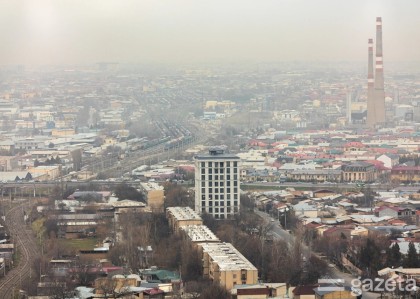The Tashkent Thermal Power Plant is no longer using residual fuel oil to produce power and heat, Thermal Power Stations company said Monday.
The Plant covers about 16% of the Tashkent’s heat needs and 12% of its power needs, with 70% of the heat energy generated using cogeneration technologies.
New 64 MW total capacity gas turbine units were commissioned at the facility in 2024. Thanks to them, 515 million kWh of power and 630 thousand Gcal of heat are generated annually. Eco-posts have been installed at three gas turbine units, which monitor and analyze emissions.
The Director of the Plant Rasul Shamsiev reported that the production of power and heat is carried out exclusively on the basis of natural gas without the use of residual fuel oil.
The Thermal Power Plants company, together with the Turkish Iltekno, built cogeneration centers in Tashkent’s Chilanzar, Almazar and Sergeli districts.
A similar technology is planned to be implemented in seven more districts of the city - Mirzo-Ulugbek, Yunusabad, Shaykhantakhur, Uchtepa, Mirabad, Yashnabad and Yangihayot.
Commenting on air pollution in the city, the Ministry of Energy reported in 2024 that 11 thermal power plants and heating plants owned by Thermal Power Plants operate in Tashkent province and the capital. At 6 of them (Tashkent TPP - located in Tashkent province, TPP 3-5, 9-10 - in Tashkent) residual fuel oil is used as a reserve fuel to provide stable power and heat energy during peak hours.
The Ministry of Ecology called the burning of residual fuel oil by heating plants one of the causes of air pollution in the capital.














